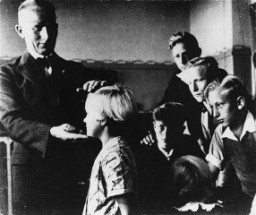You searched for: 迪拜facebook推广【TG飞机:@bapingseo】脸书全世界开户【TG电报:@bapingseo】伊朗买流量【Telegram:@bapingseo】ag真人注册上澳彩皇冠?7vJSHk/778038.html
<< Previous | Displaying results 376-400 of 581 for "迪拜facebook推广【TG飞机:@bapingseo】脸书全世界开户【TG电报:@bapingseo】伊朗买流量【Telegram:@bapingseo】ag真人注册上澳彩皇冠?7vJSHk/778038.html" | Next >>
-
Gregor Wohlfahrt
ID CardGregor was born in a village in the part of Austria known as Carinthia. During World War I, he served in the Austro-Hungarian army and was wounded. Raised a Catholic, Gregor and his wife became Jehovah's Witnesses during the late 1920s. Gregor supported his wife and six children by working as a farmer and quarryman. 1933-39: The Austrian government banned Jehovah's Witness missionary work in 1936. Gregor was accused of peddling without a license and briefly jailed. When Germany annexed Austria in 1938,…
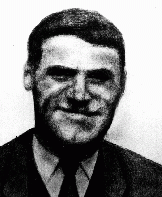
-
Hacia Rivkina
ID CardHacia was the oldest of three girls born to a Jewish family in Minsk, the capital of Belorussia. Before World War II, more than a third of the city was Jewish. Hacia's father worked in a state-owned factory building furniture, an occupation in which several of his relatives also made a living. Hacia attended Soviet public schools throughout the late 1920s and early 1930s. 1933-39: The Rivkins' home was in central Minsk, on Novomesnitskaya Street. Hacia was a talented singer and was known as being the best…
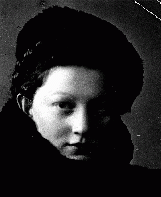
-
Ben Stern
ID CardBen was born to Jewish parents in Warsaw. When Ben was 7, his family moved to Mogielnica, about 40 miles from Warsaw. Ben's father spent much of his time studying religious texts. His wife managed the family liquor store. Ben attended public school during the day and was tutored in religious studies in the evening. 1933-39: After attending school in Warsaw, Ben returned home to help in the family's liquor store. One day, there was a mass demonstration in town. People chanted, "Don't buy from the Jews!"…
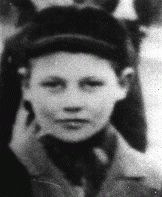
-
Blimcia Lische
ID CardBlimcia's parents were religious Jews. Her father, Shaya David, and her mother, Malcia Saleschtz, had settled in Kolbuszowa, where Blimcia's mother had been raised. There, Malcia's father bought the newlyweds a home and started his new son-in-law in the wholesale flour business. 1933-39: Blimcia was born in 1938, and was raised among many aunts, uncles and cousins. Around Blimcia's first birthday, Germany invaded Poland and soon reached Kolbuszowa. Polish soldiers on horses tried to fight against the…
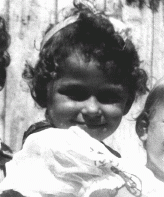
-
Yves Oppert
ID CardYves' mother died when he was 7, and he grew up in the home of his grandfather, who was the chief Ashkenazi rabbi of Paris. Yves became a successful businessman, owning a chain of department stores. He was an avid mountain climber and liked to play tennis and to race cars and motorcycles. As a young man, Yves did his military service in France's alpine corps. 1933-39: In 1934 Yves married Paulette Weill, and the couple had two daughters, Nadine in 1935 and Francelyn in 1939. He was called up by the French…
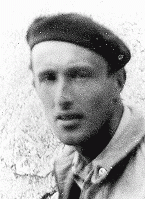
-
Thomas Pfeffer
ID CardThomas' father, Heinz, was a German-Jewish refugee who had married Henriette De Leeuw, a Dutch-Jewish woman. Frightened by the Nazi dictatorship and the murder of Heinz's uncle in a concentration camp, they immigrated to the Netherlands when Henriette was nine months pregnant with Thomas' older brother. They settled in Amsterdam. 1933-39: Thomas, also known as Tommy, was born 18 months after his older brother, Jan-Peter. In 1939 the parents and brother of Tommy's father joined them in the Netherlands as…
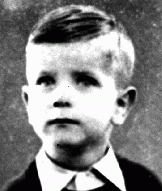
-
Nazi Racism
ArticleNazi racism and racial antisemitism ultimately led to mass murder and genocide. Learn more about Nazi racial ideology.
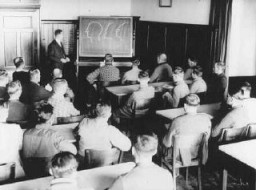
-
Barbara Nemeth Balint
ID CardBarbara was born to a middle-class Jewish family in southeast Hungary. Her father had a store that carried grocery and hardware items. Barbara had a sister named Margit and a brother named Desider. In 1928 Barbara married Istvan Geroe and moved to the town of Torokszentmiklos. Her son, Janos, was born there a year later. 1933-39: In 1933 Barbara divorced and returned with 3-year-old Janos to her parents' home in the town of Szentes. She helped run her parents' store, which was located on a busy inter-city…
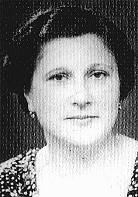
-
Janos Geroe
ID CardJanos was the only child born to a Jewish family in the small agricultural city of Torokszentmiklos, about 65 miles southeast of Budapest. His father, who had a degree in pharmacology, joined his family's grain exporting business. 1933-39: In 1933, when Janos was 4 years old, his parents divorced. According to Hungarian law, Janos was to live with his mother until he was 7 and then return to his father. Janos moved with his mother to her hometown of Szentes, where he began studying at a religious primary…
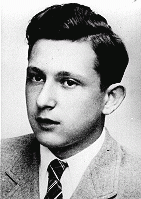
-
Shaye Rothkopf
ID CardShaye's town in the province of Lodz had a Jewish community that comprised almost one-third of the town's population. Shaye was very young when his father died during World War I. Afterwards, his grandparents helped to support his family. When Shaye was a teenager, his mother died. He and his siblings then lived with their grandparents. 1933-39: Swimming was Shaye's favorite pastime and he'd go with his friends to the banks of the Vistula River on every possible occasion. He worked in Lodz for a company…
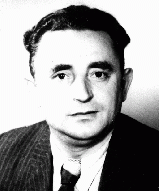
-
Johanna Falkenstein Heumann
ID CardThe oldest of five children, Johanna was born to Jewish parents living in a small town near Cologne. Her father owned a cigar factory. After Johanna graduated from high school, she worked in a bank in Cologne. At 22 she married Carl Heumann and the couple settled in the village of Hellenthal near the Belgian border. There they owned a general store. The couple had two daughters, Margot and Lore. 1933-39: A year ago Johanna's family moved to nearby Bielefeld, and she enrolled Margot and Lore in the city's…
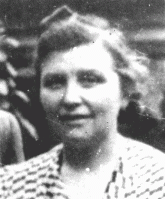
-
Edek Blonder
ID CardThe Blonder family lived in a two-room apartment in the back of a store. Edek was the third of eight children. His father eked out a meager living by tutoring students in Jewish subjects, and beginning in 1930 he worked distributing food vouchers to the poor. 1933-39: After graduating from secondary school, Edek was invited to play soccer professionally on the local Club Maccabi team, which was part of a Jewish soccer league. Club Maccabi arranged for him to attend trade school to learn cabinet making at…
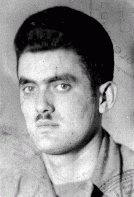
-
Mieczyslaw (Marek) Madejski
ID CardMieczyslaw was the eldest of three sons born to well-to-do Roman Catholic parents in Poland's capital of Warsaw. His father was a real estate developer and his mother was a housewife. Mieczyslaw, or Mieteck as he was nicknamed, began attending public elementary school in 1930 when he was 7 years old. 1933-39: Mieczyslaw's father urged him to study either German or Russian because he thought it was likely that there would be a German or Soviet invasion. Germany invaded Poland on September 1, 1939. During…
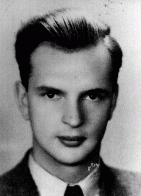
-
Dismissal letter from the Berlin transit authority
DocumentA letter written by the Berlin transit authority (Berliner Verkehrs Aktiengesellschaft) to Viktor Stern, informing him of his dismissal from his post with their agency as of September 20, 1933. This action was taken to comply with provisions of the Law for the Restoration of the Professional Civil Service. On April 7, the German government issued the Law for the Restoration of the Professional Civil Service (Gesetz zur Wiederherstellung des Berufsbeamtentums), which excluded Jews and political opponents…
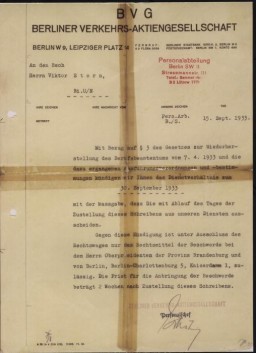
-
Roosevelt announces aid for Britain
FilmAlthough constrained by powerful isolationist sentiment in the United States, President Roosevelt was determined to help democratic Great Britain continue the war against Nazi Germany. Even as he promised to keep the United States neutral in the European war, Roosevelt ordered the expansion of military construction and pledged--as shown in this footage--that the United States would serve as the "great arsenal of democracy." In March 1941, Congress approved Lend-Lease aid for Britain. Britain ultimately…
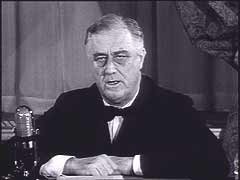
-
Defeat of Nazi Germany, 1942-1945
MapBeginning in 1938, the Nazis increased their territorial control outside of Germany. By 1942, three years into World War II, Nazi Germany reached the peak of its expansion. At the height of its power, Germany had incorporated, seized, or occupied most of the continent. However, also in 1942, the Allied Powers started to systematically bomb Germany. They would continue to do so until Germany's surrender in 1945, weakening the war effort and demolishing cities. Slowly, the Allied Powers began pushing…

-
Elie Wiesel Timeline and World Events: 1928–1951
ArticleSurvivor Elie Wiesel devoted his life to educating the world about the Holocaust. Learn about key events in the world and his life from 1928–1951.
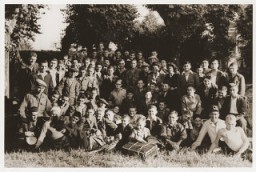
-
Auschwitz: Key Dates
ArticleExplore a timeline of key events in the history of the Auschwitz camp complex in German-occupied Poland.
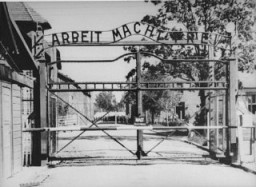
-
World War I: Treaties and Reparations
ArticleAfter the devastation of WWI, the victorious western powers imposed a series of treaties upon the defeated nations. Learn about the treaties and their impact.
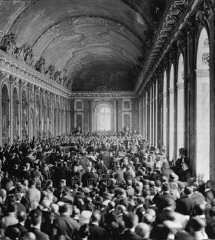
-
Hajj Amin al-Husayni: Key Dates
ArticleKey dates associated with Hajj Amin al-Husayni, former Mufti of Jerusalem who participated in a pro-Axis coup in Iraq in 1941. Explore further
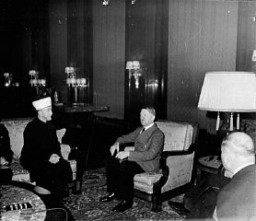
-
Anti-Jewish Legislation in Prewar Germany
ArticleNazi anti-Jewish laws began stripping Jews of rights and property from the start of Hitler’s dictatorship. Learn about antisemitic laws in prewar Germany.
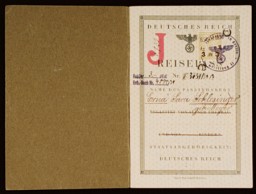
-
University Student Groups in Nazi Germany
ArticleNazi student groups played a key role in aligning German universities with Nazi ideology and in solidifying Nazi power.

-
The Harrison Report
ArticleThe Harrison Report criticized conditions in the DP camps, called for changes in the treatment of Jewish DPs, and recommended allowing them to emigrate to the US and Palestine.
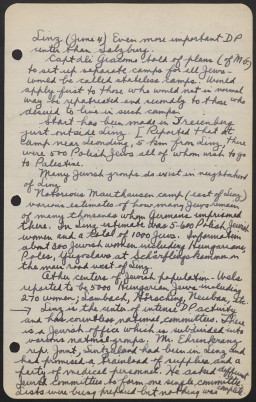
-
Warsaw Uprising
ArticleThe 1944 Warsaw uprising was the single largest military effort undertaken by resistance forces to oppose German occupation during World War II.
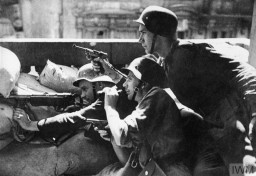
-
Aryan
ArticleAdolf Hitler and the Nazi Party adapted, manipulated, and radicalized the unfounded belief in the existence of an "Aryan race." Learn about the term Aryan.
